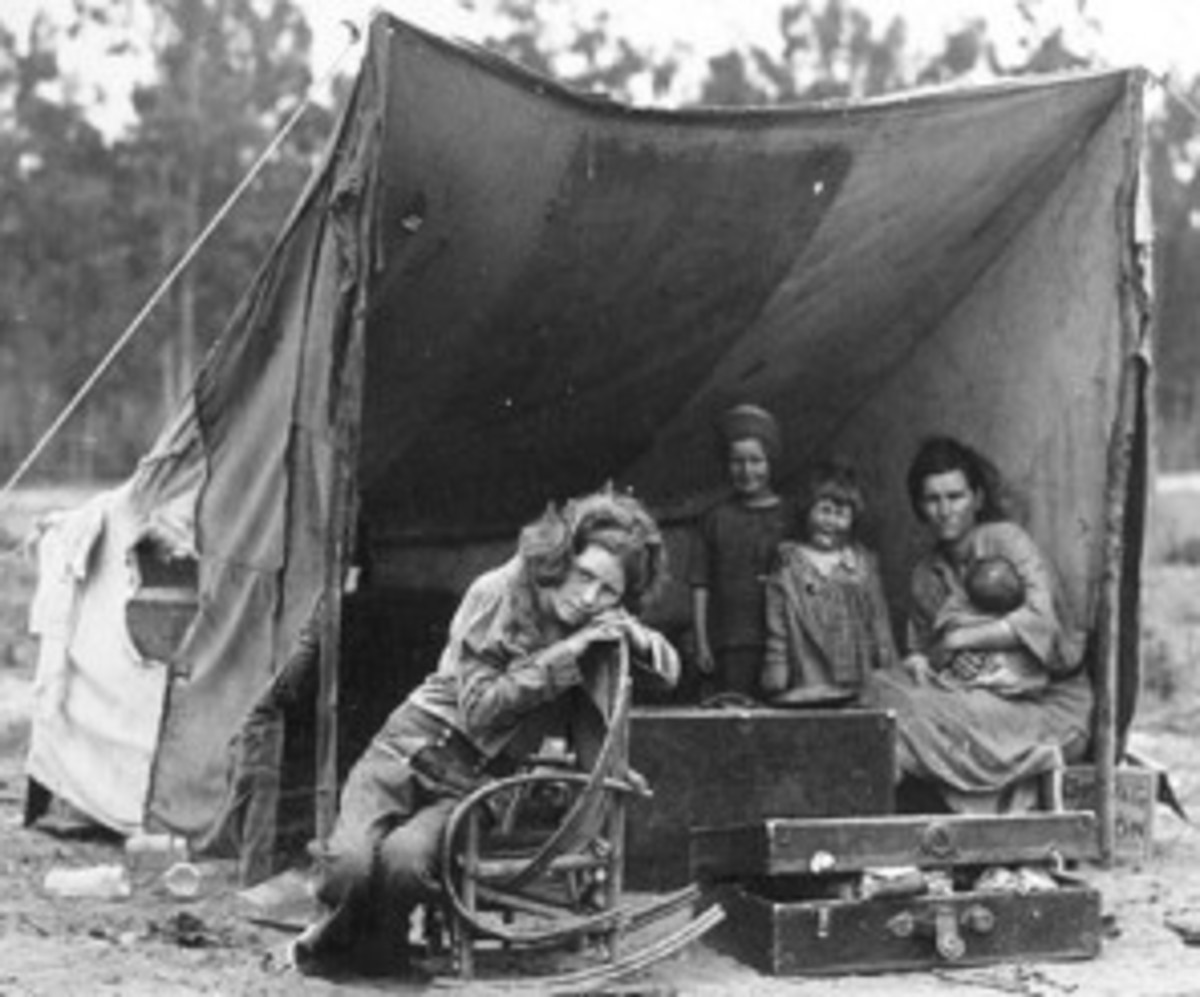In Praise of Free Range Parenting

Free Range Parents Enable Their Children To Be Independent and Successful In Life
Lenore Skenazy, the noted columnist and author, caused quite an uproar three years ago when she let her 9 year old son ride the subway home alone. Ms. Skenazy and her son, Izzy, previously discussed this event and she believed that her son was mature enough to ride the subway alone without any complications. She was proved right-her son rode the subway alone and remained unscathed.
Of course, there was an uproar from many parents. Some pundits even called Ms. Skenazy, the worst mom while other more enlightened individuals applauded her parenting style. She even created a blog and wrote a bestselling book on the subject of free range parenting.
Free range parenting does not mean haphazard parenting. Free range parents supervise their children but within reason. They have a commonsense approach in gradually allowing their children to become independent. They practice baby steps regarding allowing their children to assume gradual independence.
These parents believe that they are raising burgeoning adults, not children. They further contend that their children are individual beings with minds and personalities of their own. They believe that children should be treated age appropriately, not babied and/or mollycoddled. Their premise is a refreshing and intelligent one. To their mind's view, children should be allowed to explore their environment, have responsibilities, and to learn from their own mistakes.
Free range parents believe that experience is often the best teacher in terms of maturity and gradual independence. Many free range parents think nothing of letting their children play unsupervised as long it is in a reasonably safe area. These parents believe that all the histrionics about protecting their children from life's "difficulties", "hardships" , and "adversities" would make their children weaker and overly dependent. They inundate their children with the necessity of taking risks and learning from them.
Before the advent of the late 20th and early 21st centuries, an overwhelming majority of children were raised free range. Average parents were of the belief that the tougher a child is raised, the more resilient he/she becomes. This resilience enables the child to survive the rigors of school and the work world. In many lower middle and working class neighborhoods, children were taught to navigate their environments and circumstances from a very early age.
In the early to the very late 20th and early 21st centuries, children, especially from lower middle and working class backgrounds, started becoming independent from early childhood. In the early 20th century, children were often breadwinners /or worked to help support their families. When they were not working, their playtime was unsupervised. In fact, children in those days were free to explore their environments which they did with total abandon. The modern concept of childhood and adolescence as we know it did not become prevalent until after World War II.
After World War II, there was a marked rise in the middle class and suburban areas. Children and adolescents started to become more infantilized and structured. They started to be monitored more by their parents thus losing their autonomy. Of course, middle and upper middle class parents closely monitor their children because of the increased economic means to do so. This increasingly structured parenting escalated to what is presently known as helicopter/overprotective parenting.
So the concept of free range parenting has been a common practice for ages. It is nothing new at all. Free range parents take a mature and intelligent approach to the parenting role. They believe that they are "guiders" and "enablers" to their children. They further encourage their children to be participatory proactive members in their families. This type of parenting encourages children to make their own decisions and to be creative problem solvers.
In free range households, children are motivated to assume responsibilities earlier. Responsibilities, such as chores and running errands, builds self-confidence, character, and autonomy. It is the assertion of free range parents that the earlier a child is given responsibility, the better. To these parents, it is better to guide a 5 year old child towards gradual independence than to immediately tell an 18 year old to grow up and be independent if he/she never assumed gradual responsibility in their lives.
When children assume responsibilities at an early age, it helps them mature faster. These children will learn how to make prudent decisions and to be independent. They also know to stand up for themselves as they have taken risks before. They will be respected and seen as leaders by their peers. Furthermore, bullies will not be attracted to them as they are strong children. As stated before, bullies are attracted to weaker children, not the strong ones.
Teachers also view children of free range parenting as an exhilarating chance of pace. These children know how to survive in the classroom setting. They also have the prerequisite skills to think independently and creatively which translates into being great problem solvers. Because of their extreme maturity, they are often given responsible and/or leadership positions in school. Free range children are seldom, if ever, problems in the classroom because they possess what children of more protective parents do not-self-motivation.
Free range parents avidly encourage their children to be independent in a myriad of ways. Many children in such environments are encouraged to work early(part-time that is) in order to learn about monies and to develop a work ethic. These parents believe that children should learn every aspect of life and that includes work.
These parents did not have the idealized notion that childhood should be as carefree, stressfree, and as problem free as possible. They believe in a more practical and realistic assessment of childhood. They are of the school that childhood and adolescence are preparations for adulthood, not a time to be infantilized beyond repair. They want their children to assume as much responsibility as possible and to explore their environment in order to gain valuable life and survival skills.
As free range parents' children enter adolescence and beyond, there is not such thing as the typical teenage rebellion as with other parents. These parents know that their children are near adults and have the capacity and intelligence to make complex decisions without their guidance. These parents are not angst about their children traveling alone overseas and/or attending schools/colleges/universities overseas. They know that their children are equipped to handle such things. Furthermore, these parents have the most adult relationships with their children as they realize that their children are not children anymore but adults.
Adolescent children of free range parents have acquired the skills and acumen to survive high school and college culture. They know the importance of self-motivation and persistence in accomplishing their goals. They further know how to navigate and initiate their environment. They also do not have the entitlement mentality that the world revolves around them. They are proactive and contribute to their respective societies. They are very responsible, independent, and self-regulation people because they were given the chance of independence very early in their lives.
In the work world, children of free range parents have the skills to succeed and thrive in the work place. They are creative self-starters who know how to work with others, be problem solvers, and know how to get the job done. Bosses welcome these young people over their overprotected counterparts who are totally failures in the workplace. Children of free range parents are the most successful people around. They are the least likely to be terminated and the most likely to be promoted because of their self-confident and independent natures. Many children of free range parents oftentimes become entrepeneurs because their independent nature was encouraged early by their parents.
Children of free range parents appreciate fondly the training they have received from their parents. They also have the closest relationships with their parents because they were respected as autonomous people even in their childhoods. Their parents have indeed given them the richest lesson a child could receive-the gift of independence, initiative, and self-confidence. These gifts are priceless indeed.
In summation, free range parents value their children as thinking human beings. They believe that in order to be successful in life, children must be taught lessons in independence beginning at an early age. They further contend that life has its negatives and positives and it is totally counterproductive to shield children from life's negatives. They assert that such a premise is totally unrealistic.
Free range parenting is neither new nor uncommon. In fact, many parents raise their children that way until the late 20th and early 21st centuries. Free range parenting is in fact more prevalent than the newer concept of the helicopter parent. Free range parenting has a myriad of benefits for children including independence, creativity, resilience, and initiative. These skills would serve a child well all of his/her life. What more can a parent and child ask for?
Books on the Subject
© 2011 Grace Marguerite Williams







